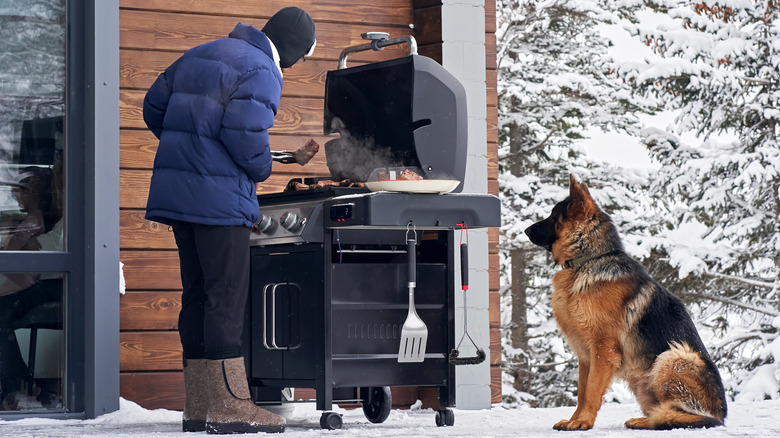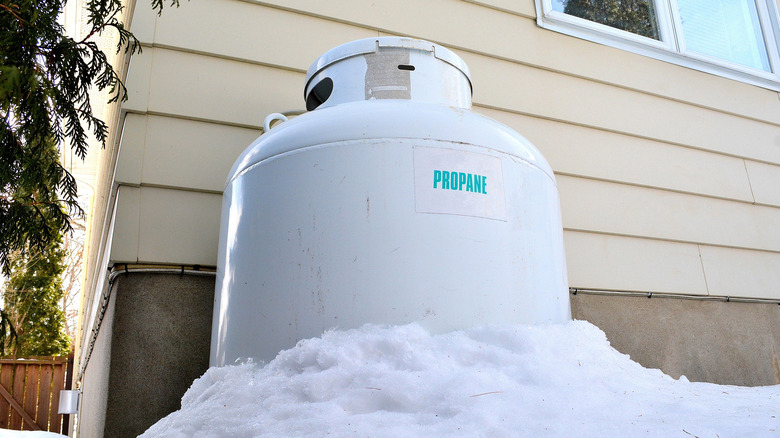Take These Measures To Prevent Your Propane Regulator From Freezing Over
We may receive a commission on purchases made from links.
If you use propane anywhere in the house or yard, you'll have seen a propane regulator dozens of times, but maybe you never thought about what it actually does. It's a pretty simple device that takes the high pressure in a propane tank and reduces it to the correct flow for the barbecue, boiler, etc. If the regulator develops a fault, the appliance it's attached to won't run properly, if at all. So if you see frost on the outside of a regulator, it's worth looking into possible causes and some measures you can take to prevent them.
From a safety point of view, it's not recommended to keep propane tanks in a garage or shed, so they need to stay outside. Don't worry — propane doesn't freeze until negative 306.4. degrees Fahrenheit. Granted, it does turn to liquid at negative 44 degrees Fahrenheit, and liquid propane does not burn. Nevertheless, temperatures like that are fairly unusual, so it should be perfectly practical to barbecue on wintry days. However, sometimes frost on a propane regulator will actually be a sign of a fault, which needs to be identified and dealt with as soon as possible. If your regulator is frozen, it could be something as simple as a propane bottle being tilted over. In cold temperatures, liquid propane could get into the regulator and freeze there. So check that bottles are upright. Escaping gas can also cause frost on the regulator. You can use soap and water to figure out where the leak is coming from by coating the tank's exterior and cylinder valve and see where bubbles appear. If the regulator is leaking, it should be replaced immediately.
Identify what causes your propane regulator to freeze
Another common cause for a frozen regulator is humidity. In cold weather, this can cause water in the air to condense in and around the regulator, which in turn freezes and can interrupt the gas flow. If you have standard propane bottles, this can often be prevented by using a low-cost regulator cover like the ones produced by Camco.
If you have a large propane tank for heating and hot water, the alternative is to add a small amount of methanol to the gas. Propane can absorb water, and what methanol does is take that moisture out of the gas so it's much less likely to freeze. However, methanol is extremely flammable, and the vapors are toxic. It is possible to buy an injector and do the job yourself, but we strongly recommend consulting a professional. If you're reliant on your propane regulator working properly to stay warm, it's a good idea to have a regular maintenance schedule in place anyway. It's just one of the many maintenance requirements of propane tank.

